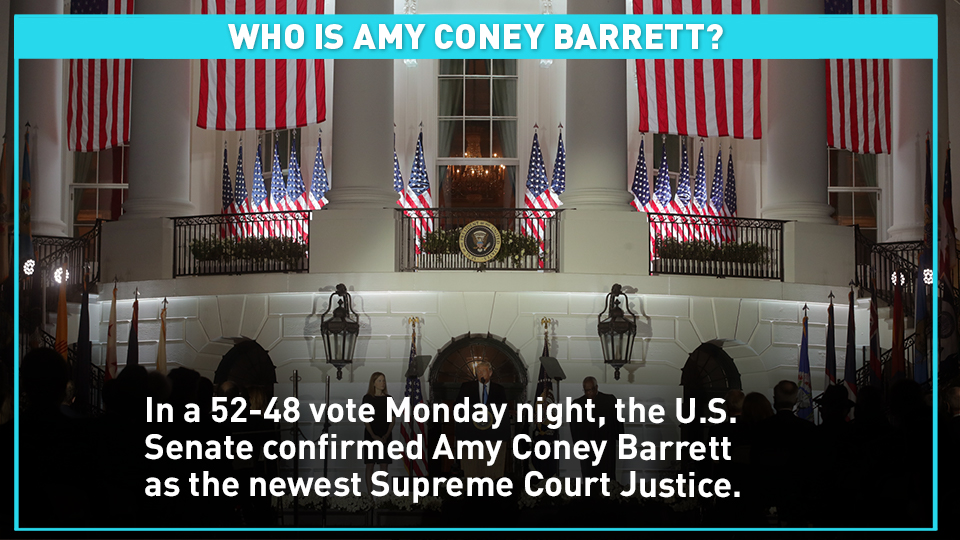
Click right to read more.
Click right to read more.
In a 52-48 vote Monday night, the U.S. Senate confirmed Amy Coney Barrett as the newest Supreme Court Justice.
Barrett officially began her role in the U.S. Supreme Court (SCOTUS) Tuesday morning, after Chief Justice John Roberts swore her in.
The Senate voted mainly along party lines, with Republicans voting in favor of Barrett with one exception, Senator Susan Collins of Maine. the court now holds a conservative 6-3 majority.
But who is Amy Coney Barrett and what could her confirmation mean?
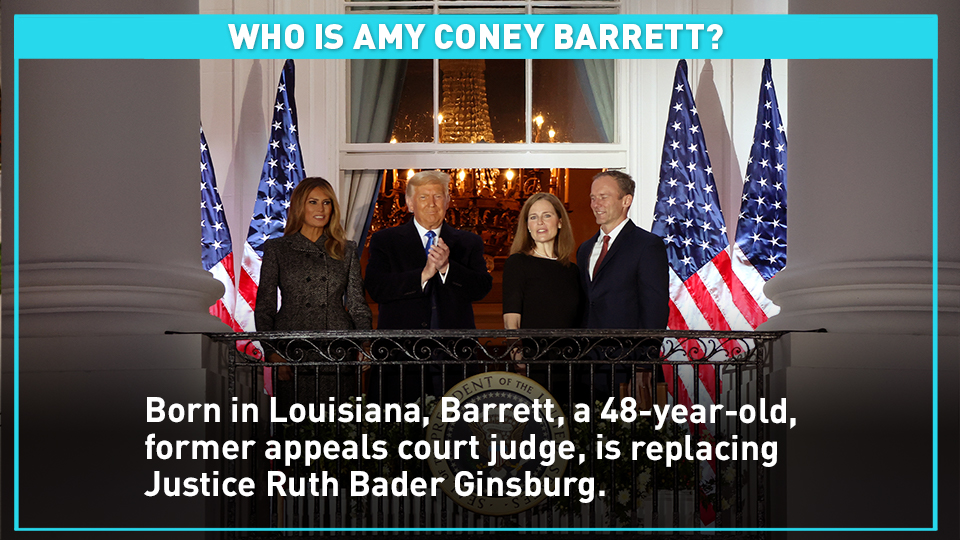
Click right to read more.
Click right to read more.
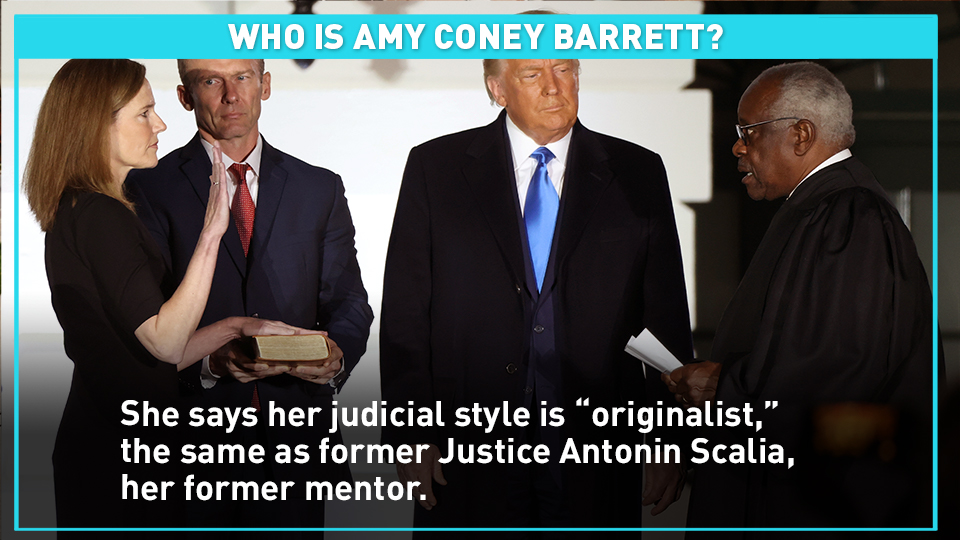
Click right to read more.
Click right to read more.
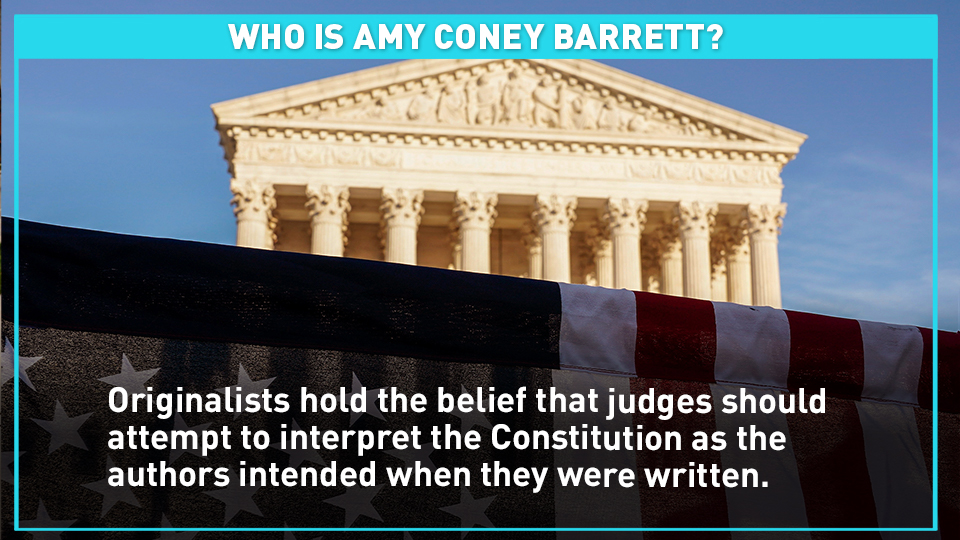
Click right to read more.
Click right to read more.
Born in Louisiana, Barrett, a 48-year-old, former appeals court judge is replacing Justice Ruth Bader Ginsburg. Before being nominated to appeals court judge in 2017 by President Trump, Barret was a law professor at Notre Dame for 15 years. She lives in South Bend, Louisiana, with her husband and seven children.
She says her judicial style is "originalist," the same as former Justice Antonin Scalia, her former mentor.
Originalists hold the belief that judges should attempt to interpret the Constitution as the authors intended when they were written.
"Ginsburg maintained one of the most consistent liberal voting records in the history of the court. Barrett has the same consistency and commitment," Jonathan Turley, a professor of law at George Washington University, tells the BBC. "She is not a work-in-progress like some nominees. She is the ultimate 'deliverable' for conservative votes," according to Turley.
Barret considers herself a devout Catholic and says her faith does not compromise her work.
"I would stress that my personal church affiliation or my religious belief would not bear in the discharge of my duties as a judge," she once said.
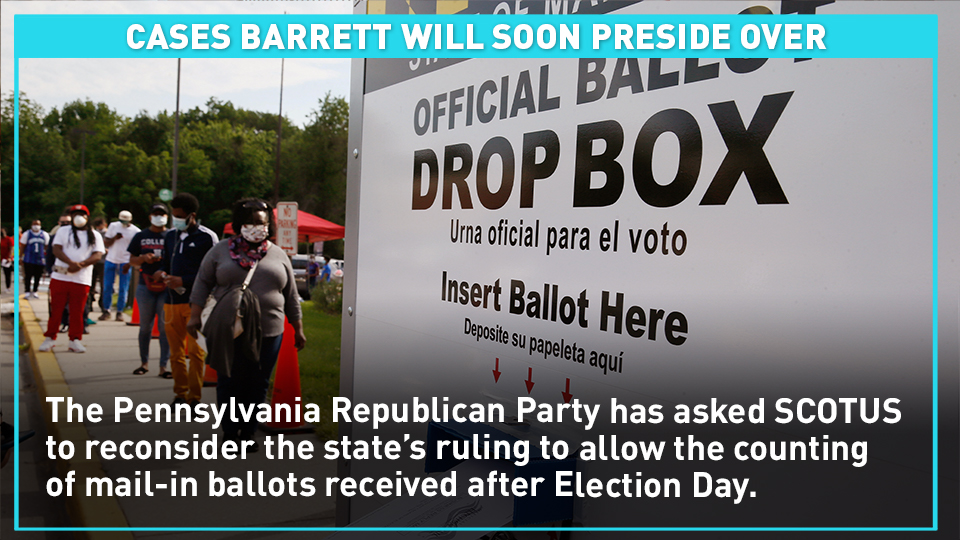
Click right to read more.
Click right to read more.
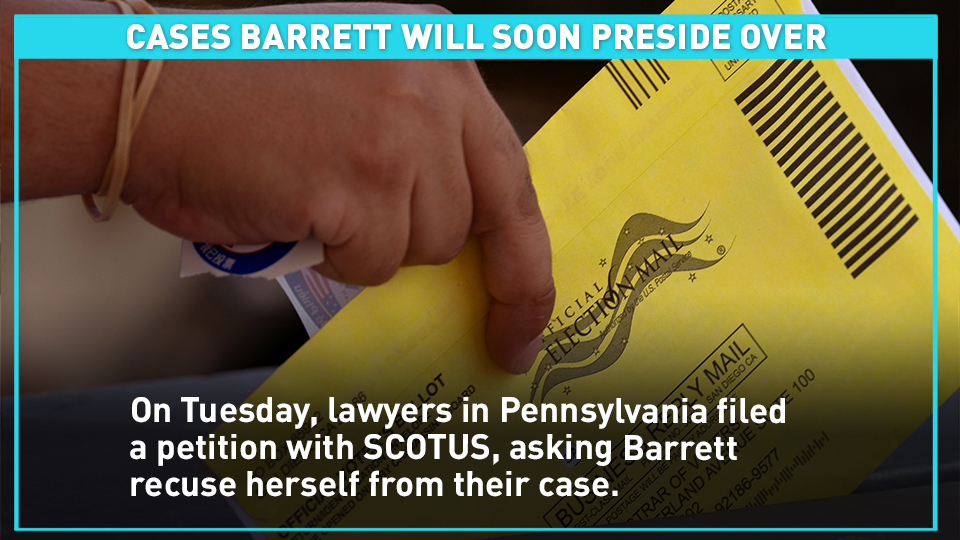
Click right to read more.
Click right to read more.
Barrett's First Duties
In her first week on the court, Barrett is expected to hear a range of important cases, including cases related to the 2020 election. Here are three cases Barrett will preside over in the coming days:
• The Pennsylvania Republican Party has asked SCOTUS to reconsider a case involving mail-in ballots in the state. The state Supreme Court recently decided some mail-in ballots received after Election Day should be counted. If this decision is overturned, some fear it could impact how Pennsylvania and its Republican-controlled legislature will choose the electors who will vote for the presidency.
• SCOTUS is set to rule on whether a New York prosecutor will get access to President Trump’s financial documents and tax returns.
• Barrett will preside over a case involving abortion in Mississippi. A federal judge in 2018 struck down a state law forbidding abortions after 15 weeks. An Appeals Court upheld the ruling last year but Mississippi’s Attorney General argues there are contradictions in the courts’ decisions.
Cases involving the election and ballot counting in Wisconsin and North Carolina are also requesting Supreme Court hearings.
On Tuesday, lawyers representing a Pennsylvania county, filed a petition with SCOTUS, asking Barrett recuse herself from their case.
The lawyers argue she would be "catastrophic to the delicate foundation of integrity and public confidence upon which the judiciary sits," according to CNN.
Check out The China Report, our new weekly newsletter. Subscribe here!